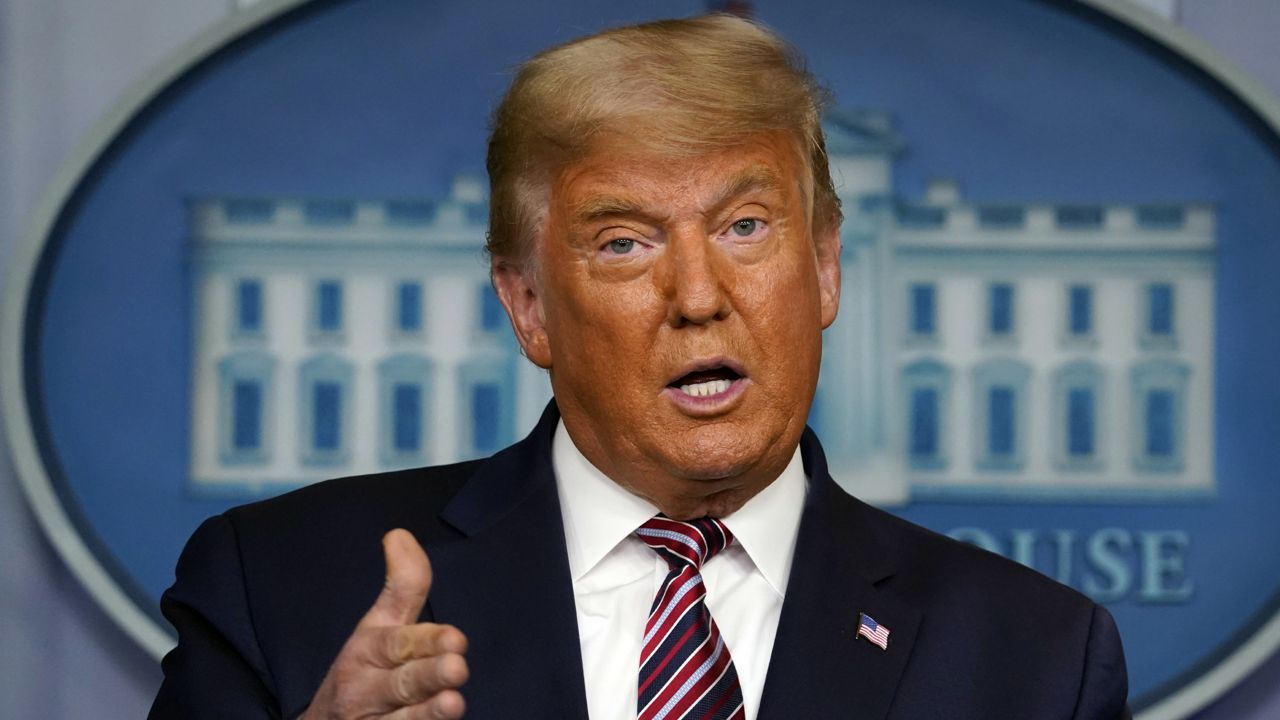President Trump on Wednesday followed through with his promise to veto the National Defense Authorization Act, returning it to the House of Representatives without his approval.
“My Administration recognizes the importance of the Act to our national security,” a statement from the president read in part. “Unfortunately, the Act fails to include critical national security measures, includes provisions that fail to respect our veterans and our military's history, and contradicts efforts by my Administration to put America first in our national security and foreign policy actions.”
“It is a ‘gift’ to China and Russia,” Trump added.
The president had long threatened to veto the act for numerous reasons, chief among them being it did not contain language repealing Section 230, a key component of the Communications Decency Act that shields websites from liability for content posted by the platform’s users.
“Your failure to terminate the very dangerous national security risk of Section 230 will make our intelligence virtually impossible to conduct without everyone knowing what we are doing at every step,” Trump wrote Wednesday.
Additionally, Trump has taken issue with a provision of the bill mandating army bases bearing Confederate names be changed.
“Over the course of United States history, these locations have taken on significance to the American story and those who have helped write it that far transcends their namesakes,” Trump wrote Wednesday, adding: “I have been clear in my opposition to politically motivated attempts like this to wash away history and to dishonor the immense progress our country has fought for in realizing our founding principles.”
Congress has passed the NDAA for nearly six straight decades, and lawmakers aren’t looking to break the tradition this year. Both the House and Senate passed the measure by margins large enough to override a veto from the president.
Still, the override isn’t a guarantee, as some Republicans previously said they would not vote to override Trump. The Senate passed the NDAA by a margin of 84-13; the House of Representatives passed the measure with a veto-proof majority of 335-78. A two-thirds vote is needed in each chamber for the bill to become law without Trump’s signature.
Congress on Monday set a preemptive debate time for Dec. 28 in order to vote to override the president’s veto.
A potential override of a veto would be a first for Trump and would come not long before he leaves office Jan. 20.
A handful of lawmakers have reacted to Trump’s veto, with House Speaker Nancy Pelosi slamming the move as “an act of staggering recklessness” and saying it “violates our national values.”
“In a time when our country was just targeted with a massive cyberattack, it is particularly hard to understand the reasoning behind the President’s irresponsibility,” Pelosi wrote in a statement. “Disturbingly, Trump is using his final hours in office to sow chaos, including by denying our servicemembers a long-overdue pay raise and hazard duty pay; our families paid family leave, child care, housing and health protections; and our veterans the benefits that they need and deserve.”
Democratic Senator Jack Reed of Rhode Island likewise criticized the move as “irrational,” saying the veto will have far-reaching consequences.
“On the eve of Christmas Eve, this veto seems to be Trump’s parting gift to Putin and a lump of coal for our troops. This bill is critically important to our national defense and the quality of life for Soldiers, Sailors, Marines, and Airmen,” Reed wrote in a statement, adding: “Donald Trump is showing more devotion to Confederate base names than to the men and women who defend our nation. His irrational veto of this bipartisan NDAA fails U.S. forces that are serving in harm’s way and harms U.S. national security.”
But at least one Senate Republican – Lindsey Graham of South Carolina – thinks lawmakers should heed Trump’s request, tweeting Wednesday that he will “not vote to override presidential veto unless effort is made to wind down Section 230.” Graham was one of three Senators who abstained from the Dec. 11 vote that authorized the NDAA for 2021.
GOP Senator Jim Inhofe of Oklahoma said he shares Trump’s priorities, but did not clarify if he plans to vote to override Trump’s veto. Inhofe instead tweeted Wednesday that Congress “can and should use another legislative vehicle to repeal Section 230 of the Communications Decency Act.”
“The NDAA has become law every year for 59 years straight because it’s absolutely vital to our national security and our troops. This year must not be an exception. Our men and women who volunteer to wear the uniform shouldn’t be denied what they need— ever,” Inhofe continued, adding: “I hope all of my colleagues in Congress will join me in making sure our troops have the resources and equipment they need to defend this nation.”
The Associated Press contributed to this report.



